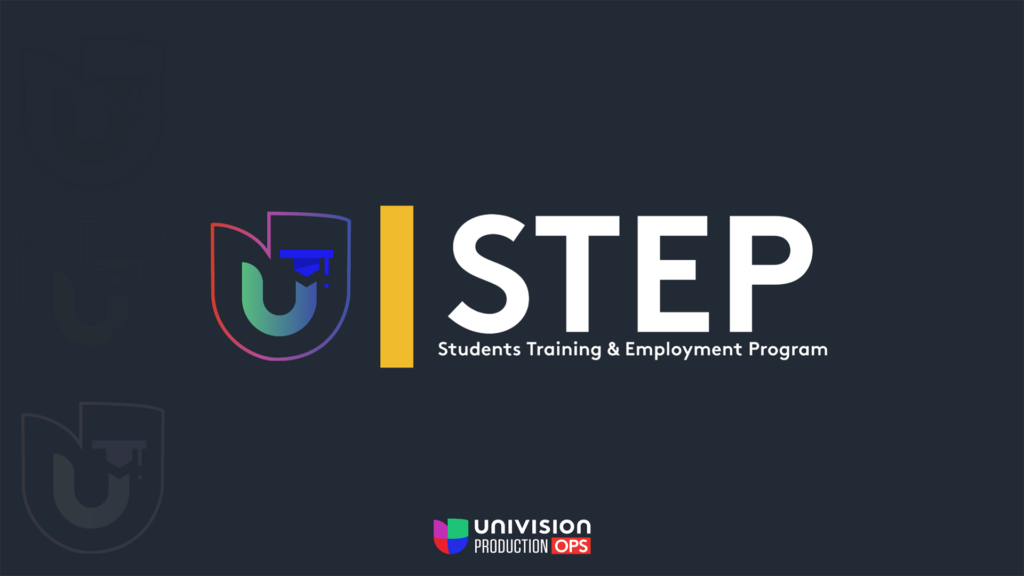
Diane Kniowski knew she had a problem. Three years ago, as the newly minted head of Univision’s local media division, Kniowski felt the company was behind the curve in one critical area. “We didn’t have a lot of people who were bilingual who really understood digital content,” she says. “I needed people who were not intimidated. And I started thinking, ‘Okay, that’s everybody in college with a cell phone.’”
That insight was the inspiration for a program called STEP (for Students Training & Employment Program) — a nearly two-year-old collaboration between Univision and Florida International University (FIU). STEP is an ingenious and replicable answer to one aspect of the recruitment crisis that’s crushing local TV newsrooms, English and Spanish-speaking alike — a crisis we recently wrote about here and here. “We would be committing malpractice if we didn’t focus intently on creating our own pipeline,” says Chris Peña, head of news for Univision’s local media properties. “Finding qualified candidates who can work in a Spanish broadcast environment is getting more and more difficult.”
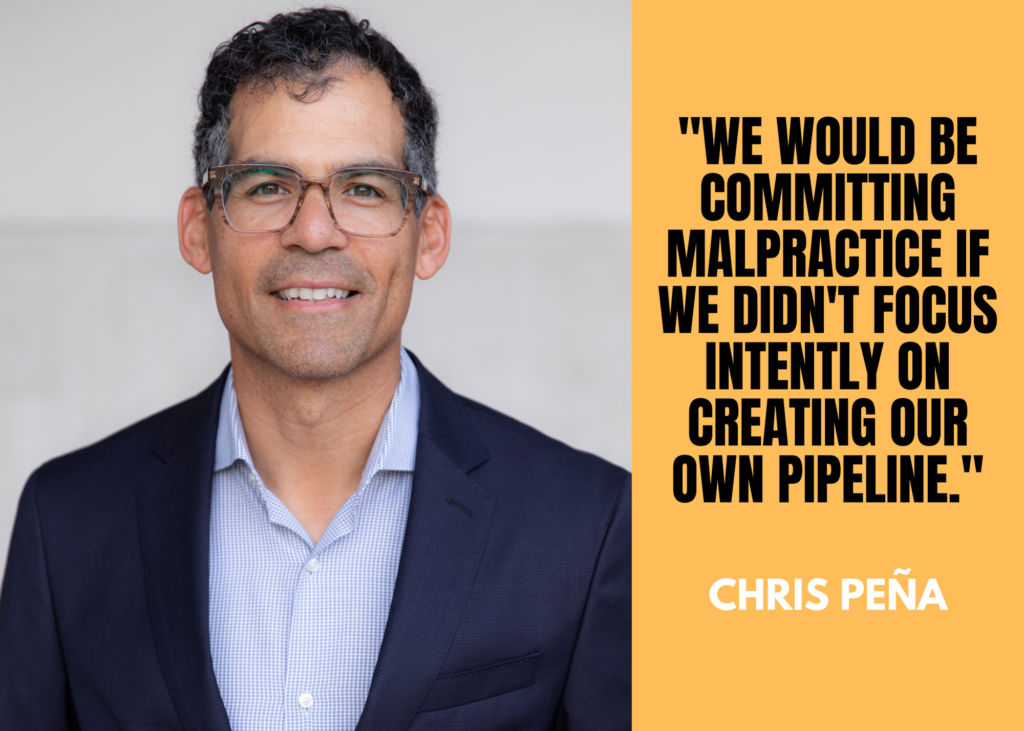
Here’s how STEP addresses that challenge. FIU selects high-performing seniors or graduate students for the program. Each year, three groups of 20 students each work at Univision for 14 weeks at a time, so there’s almost always a STEP team on the job. And it is a job, not a traditional internship, says the program’s in-house champion, local media’s head of operations Ruben Robledo. “We’re treating them like employees,” he says. “So a class could be at 10 o’clock in the morning. But if they have a project to deliver and it’s part of going on air, then they need to deliver within the eight-hour window of the work day. And so we put the pressure on them, we make them uncomfortable, but in a positive way where they can actually feel this pressure.”
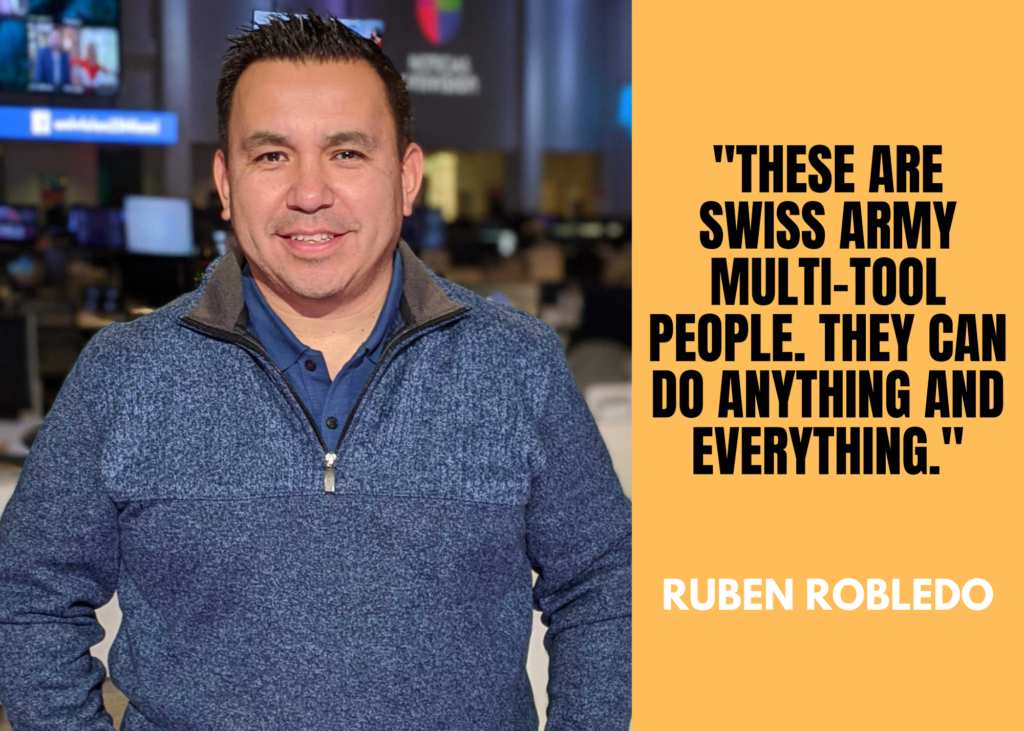
The program has expanded beyond Kniowski’s initial vision of digital content creation, now ranging across all aspects of digital and TV production. “It used to be sexy to come and work for TV and radio. Now, not so much,” Kniowski says. “Now sexy is the digital world. But for us, training producers, training MMJs, technical directors and directors, those are the jobs that we’re going to start building.”
To that end, the students get intensive training in a broad array of digital and broadcast newsroom functions and departments (even radio!), equipment, lectures from high-level Univision executives as well as outside experts, and an hourly wage. Univision funds the program through its foundation and from operating expenses. While the program is based in Miami, the STEP students take on remote assignments from any of the company’s owned stations and even the network. During each three-month term, STEP students fulfill an average of 4,000 requests, according to Robledo — an astonishing output of 200 per student.
“These are Swiss Army multi-tool people,” Robledo says. “They can do anything and everything from being on air all the way to editing or doing technical stuff for your newscasts. So if somebody from Chicago calls us and says, ‘Listen, I have a package, I cannot edit it, can you help me out?’ Then we can send it to a STEP student and assign that to them. The digital teams lean tremendously on them: ‘We need to create a story about X, Y and Z, and we need to publish it on five different sites.’ They can do that. Other stations might need a translation, so they translate. Or ‘I need a full graphic design for a package that I’m building. Can somebody help me out?’ We can do that.”
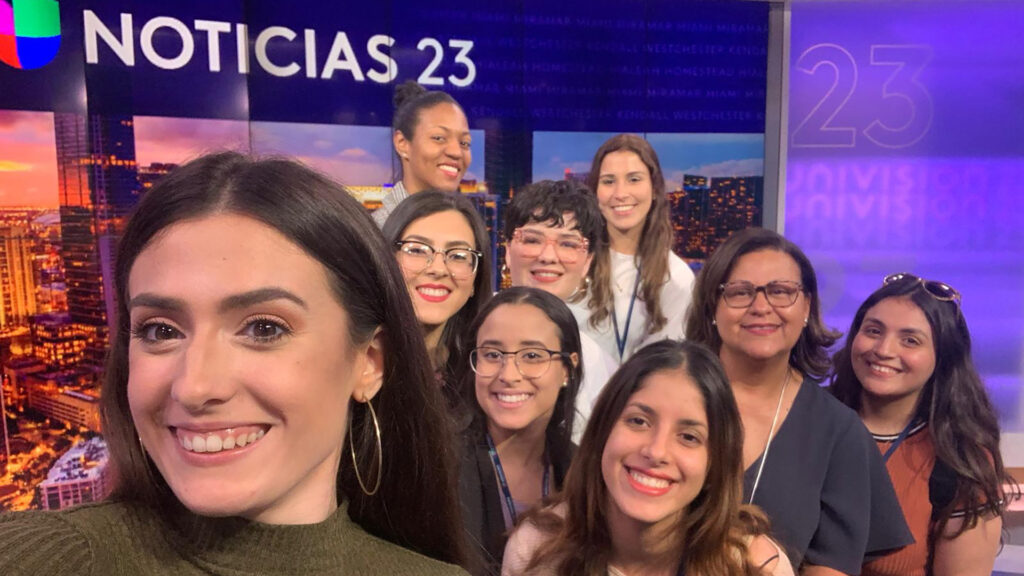
Andrea Igliozzi is a STEP success story. She’s now a multimedia journalist at Univision’s Sacramento station, recruited by an executive who met her at the program. “She’s kicking butt. in Sacramento, in her first job,” says Peña — and Igliozzi gives STEP much of the credit. “I think the things that make me stand out more as a reporter are the things that I learned in STEP, because we did journalism, but besides that, we learned how to do graphics, how to talk to people, how to manage social media, how to publish articles,” she says. “They transformed us into this beast of journalism, because everyone that graduates from STEP knows how to do everything, and I am one of them.”
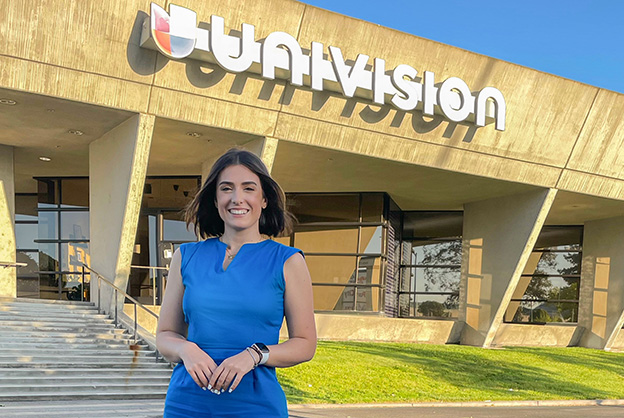
Univision is drawing on this cadre of Swiss Army multi-tool “beasts of journalism” to fill a growing number of jobs. Peña estimates that more than a dozen SWAT alums are in the company already. “Selfishly, we need trained employees,’ he says. “And we’ve come to rely on the STEP program for almost every entry level and above sort of position.”
Univision executives also call on the STEP students for insights into their generation’s fast-changing media environment — a classic example of the “reverse mentorship” model. For example, Robledo has each group present an “app of the week.” “A lot of them bring different ideas,” he says. “They show us stuff and how they are doing it, and it just blows our minds. And if it is something that is worth it, we just grab it and use it in our company.”
“Change is a challenge,” Kniowski says. “Even good change is hard to implement sometimes. And technology can be intimidating. And so sometimes it’s quicker to bring someone from the outside that just knows how to do it. And once they start doing it, it becomes contagious. [The STEP students] are fearless, They’ve been raised on this technology. And it’s amazing how fast they come along.”
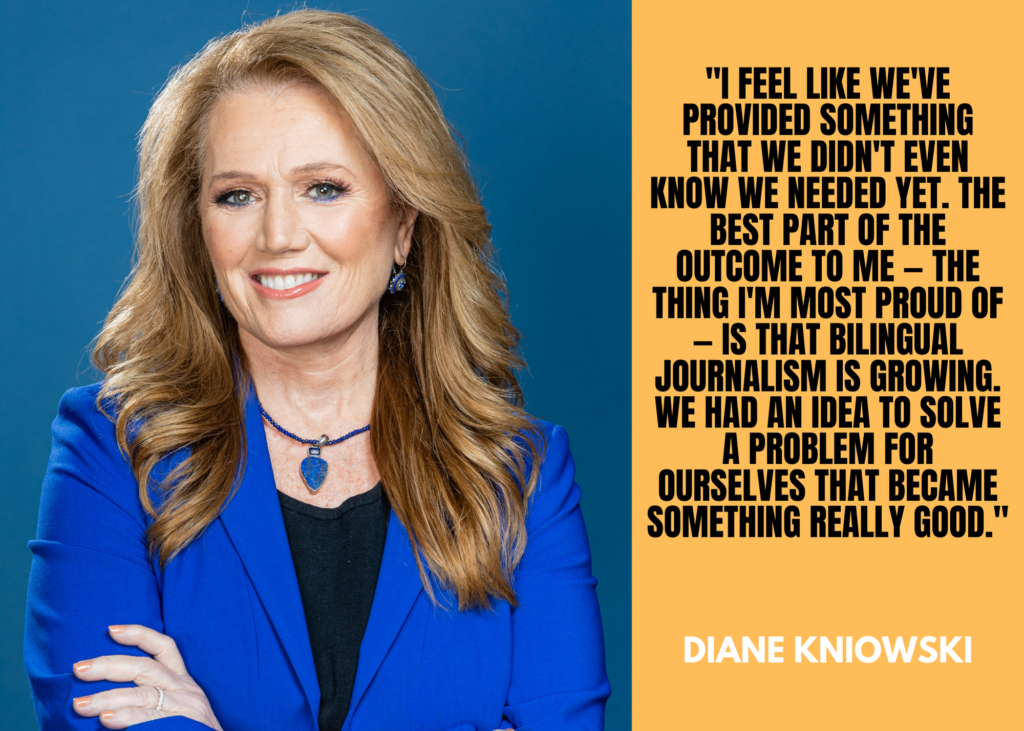
What started as a clever way to address Univision’s recruitment issues has the potential to help not just the students and the school, but other companies seeking highly trained and motivated bilingual journalists — and therefore local TV news in general. Robledo, who started as an intern in Univision’s Juarez, Mexico bureau in 1997 and worked his way up, is eager to pave the way for other young journalists like the STEP students. “They come as carbon, and we try to polish the gem and send them back as a good looking diamond, so they can get into the workforce and start working for any company. We wish they could all stay at Univision. But this program is about making sure that the industry as a whole continues to move forward. Because we believe that benefits all of us.”
“We want these students to get jobs, whether it’s with us or with Telemundo,” Kniowski says.. “We want this program to be extremely successful. I feel like we’ve provided something that we didn’t even know we needed yet. The best part of the outcome to me — the thing I’m most proud of — is that bilingual journalism is growing. We had an idea to solve a problem for ourselves that became something really good.”
Get the Lab Report: The most important stories delivered to your inbox